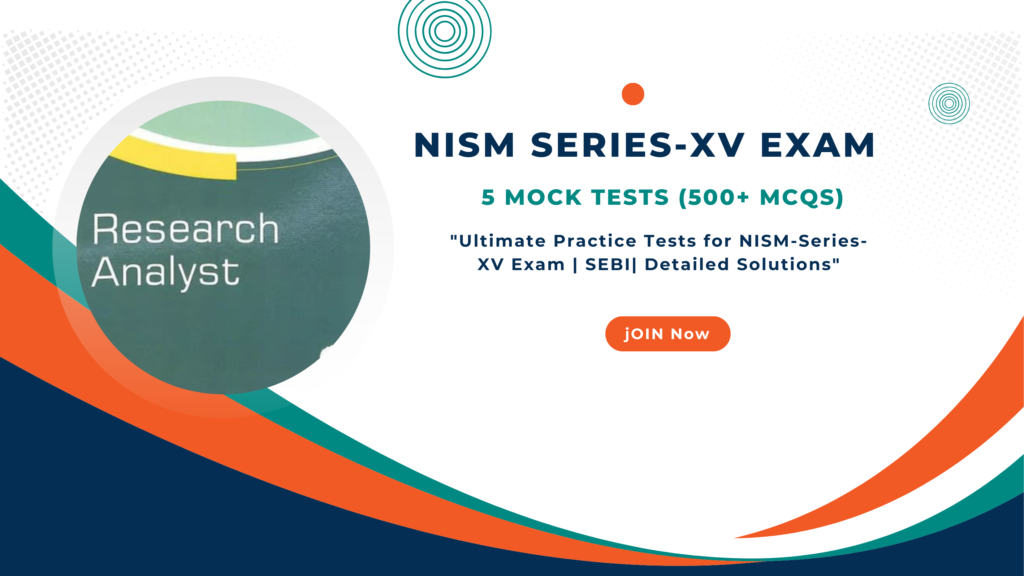Over the years, the role of a Research Analyst has become increasingly vital in various industries, as you leverage data to inform decision-making and strategies. Understanding the key responsibilities and skills required for this position can set you on a path to success. In this guide, you will learn how to become a Research Analyst, effective study techniques, and the significance of mock tests in preparing for the RA exam. Equip yourself with the knowledge necessary to thrive in this competitive field.
1. Research Analysts analyze data to inform decision-making processes.
2. Strong analytical skills are crucial for success in this role.
3. Proficiency in statistical software greatly enhances job effectiveness.
4. A relevant degree boosts qualifications for aspiring analysts.
5. Continuous learning keeps research analysts updated on industry trends.
6. Networking expands opportunities and insights within the field.
Role of a Research Analyst
Before initiateing on a career as a research analyst, it’s important to understand that your role involves interpreting complex data to provide actionable insights. This position is vital in various sectors, such as finance, healthcare, and marketing, where data-driven decisions can significantly impact outcomes. You’ll be responsible for transforming raw data into meaningful information that influences strategies and guides organizational goals.
Key Responsibilities
Along with data analysis, your responsibilities will include conducting market research, preparing reports, and presenting findings to stakeholders. You’ll need to employ statistical tools and methodologies to gather, analyze, and visualize data effectively, ensuring that your insights are both relevant and timely.
Skills Required
The successful research analyst must possess a diverse skill set, including analytical thinking, proficiency in statistical software, and strong communication abilities. Additionally, a solid understanding of research methodologies and attention to detail are fundamental to performing your tasks effectively.
Research plays a vital role in a research analyst’s effectiveness. You must be adept at critical thinking to evaluate data sources, discern trends, and predict future market behaviors. Additionally, technical skills in programs like Excel, SQL, or R, coupled with the ability to synthesize complex information clearly, improve your value as an analyst. Building these skills ensures that your insights will not only be accurate but also impactful in the decision-making process.
Educational Background
You will find that a strong educational background is vital for becoming a successful Research Analyst. Typically, a bachelor’s degree in finance, economics, mathematics, or statistics provides a solid foundation. Advanced degrees such as a Master’s in Business Administration (MBA) can further enhance your prospects, equipping you with deeper analytical and managerial skills necessary for the role.
Relevant Degrees
Beside a relevant bachelor’s degree, pursuing courses in data analysis, market research, or quantitative methods will greatly benefit your career as a Research Analyst. These programs will help you develop vital skills in statistical analysis and critical thinking, enabling you to interpret data effectively and make informed decisions in your analysis.
Certifications
On the other hand, obtaining industry-recognized certifications can boost your credentials and marketability. Certifications such as the Chartered Financial Analyst (CFA) or Financial Risk Manager (FRM) are highly esteemed within the financial and research industries, showcasing your commitment to the field and enhancing your analytical proficiency.
In addition, certifications can provide you with specialized knowledge and networks of professionals in the industry. These programs often include rigorous coursework and exams, ensuring that you are well-prepared for the complexities of data analysis. Pursuing such certifications demonstrates to potential employers that you possess the skills and dedication necessary to excel as a Research Analyst.
Career Pathways
All aspiring Research Analysts (RAs) have diverse career pathways ahead of them. You can start your journey in various sectors, including finance, healthcare, and market research, where analytical skills are highly valued. As you gain experience and expertise, you can move into specialized roles or managerial positions, enhancing your career prospects.
Entry-Level Positions
Pathways into the field typically begin with entry-level positions such as data analyst or research assistant. In these roles, you will be responsible for assisting with data collection, conducting preliminary analyses, and supporting senior analysts. These foundational experiences will equip you with the necessary skills and knowledge to excel in the field.
Advancement Opportunities
Against the backdrop of a competitive job market, the potential for advancement in this field remains strong. With a few years of experience and additional certifications, you can step into senior analyst roles or management positions, significantly increasing your responsibilities and earning potential.
Entry-level roles often lead to exciting advancement opportunities. As you develop your analytical skills, critical thinking, and industry knowledge, you can pursue specialized areas such as financial analysis, market intelligence, or policy research. Moreover, obtaining additional certifications or a master’s degree can accelerate your career trajectory, helping you reach senior management or even executive-level positions in research and analysis.
Essential Tools and Technologies
For aspiring Research Analysts, a solid understanding of important tools and technologies is vital. These tools not only streamline your workflow but also enhance the quality of your research outcomes. Familiarizing yourself with the various applications will empower you to perform comprehensive analyses and produce insightful reports, thus positioning you for success in the competitive field of research analysis.
Data Analysis Software
Along your journey to becoming a Research Analyst, proficiency in data analysis software is indispensable. Tools like Excel, R, and Python enable you to manipulate data effectively, uncover trends, and visualize your findings. By mastering these applications, you will enhance your analytical capabilities, setting yourself apart in the job market.
Research Databases
An important component of research analysis is access to reliable research databases. These platforms, such as JSTOR, PubMed, and Google Scholar, provide you with a wealth of peer-reviewed articles, studies, and reports that are critical for informed decision-making. They serve as the backbone of your research endeavors.
But accessing research databases is not just about having them available; it’s about understanding how to navigate them effectively. You should be adept at utilizing advanced search techniques, filtering results, and leveraging citations to deepen your analysis. Building familiarity with these databases will significantly enhance your research and ensure you utilize credible sources in your work. This knowledge will give you a competitive edge as a Research Analyst.

Methodologies in Research
Keep in mind that understanding various research methodologies is vital for any aspiring Research Analyst. These methodologies guide how you collect, analyze, and interpret data, ensuring your research is both valid and reliable. From qualitative insights to quantitative metrics, mastering these approaches enhances your ability to generate meaningful conclusions from your data.
Qualitative vs. Quantitative
Between qualitative and quantitative research, you must recognize the strengths of each approach. Qualitative research focuses on understanding subjective experiences and social phenomena, while quantitative research emphasizes numerical data and statistical analysis. Knowing when to apply each approach will strengthen your analysis and provide comprehensive insights.
Data Collection Techniques
The methods you employ for data collection play a significant role in shaping the quality of your research. These techniques can range from surveys and interviews to observational studies and content analysis, each serving a distinct purpose based on your research questions and objectives.
Further, choosing the right data collection technique is fundamental to obtaining reliable information. Surveys can reach large populations efficiently, while interviews offer deeper insights into individual experiences. Observational methods allow you to gather real-time data in natural settings, providing context that numbers alone may miss. Ultimately, a combination of techniques can enhance the richness and reliability of your findings, empowering you, as a Research Analyst, to make informed decisions based on solid evidence.
Importance of Networking
Once again, networking plays a vital role in your journey to becoming a successful Research Analyst. Establishing connections in the industry can open doors to job opportunities, mentorships, and valuable insights. Engaging with experienced professionals can offer guidance on best practices and the latest trends in research methodologies, ultimately enhancing your career trajectory.
Professional Organizations
The effectiveness of networking often hinges on your membership in professional organizations. These groups provide platforms for you to connect with peers and industry leaders, attend workshops, and gain access to exclusive resources. Engaging with these organizations not only broadens your knowledge base but also positions you as a committed professional in the research field.
Building Connections
Above all, building connections is fundamental to your growth as a Research Analyst. Networking events, seminars, and conferences are excellent opportunities to meet like-minded individuals and expand your professional circle.
Even more, actively participating in online forums and social media groups related to research can significantly enhance your networking efforts. Platforms like LinkedIn allow you to engage with industry experts and potential employers, while also showcasing your skills and accomplishments. This proactive approach not only helps in making connections but also establishes your presence within the research community, ensuring you stay informed and connected in a competitive landscape.
Final Words
So, as you launch on your journey to becoming a Research Analyst, it’s crucial to understand the skills and knowledge required in this vital role. By focusing on effective study strategies and utilizing mock tests, you can enhance your preparation and boost your confidence for the RA Exam. With dedication and a clear plan, you can position yourself for success in this dynamic and rewarding field, where your analytical insights will shape informed decisions and drive impactful results.
Visit the site below for the Mock Test for RA :-



Did you know that over 60% of people taking prescriptions experience serious pharmaceutical mishaps stemming from lack of knowledge?
Your physical condition requires constant attention. All treatment options you implement significantly affects your quality of life. Staying educated about the drugs you take should be mandatory for disease prevention.
Your health goes far beyond swallowing medications. All pharmaceutical products interacts with your biological systems in potentially dangerous ways.
Consider these critical facts:
1. Taking incompatible prescriptions can cause health emergencies
2. Even common allergy medicines have potent side effects
3. Skipping doses undermines therapy
For your safety, always:
✓ Research combinations using official tools
✓ Read instructions thoroughly before taking new prescriptions
✓ Consult your doctor about potential side effects
___________________________________
For reliable medication guidance, visit:
https://www.provenexpert.com/chest-congestion-relief-dm/